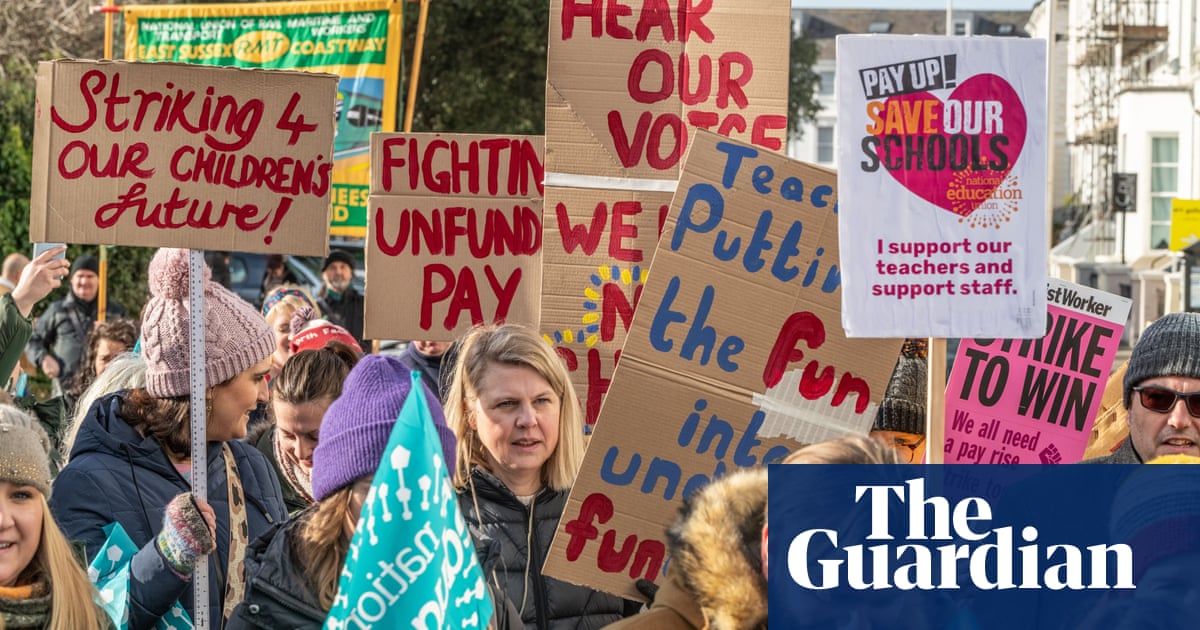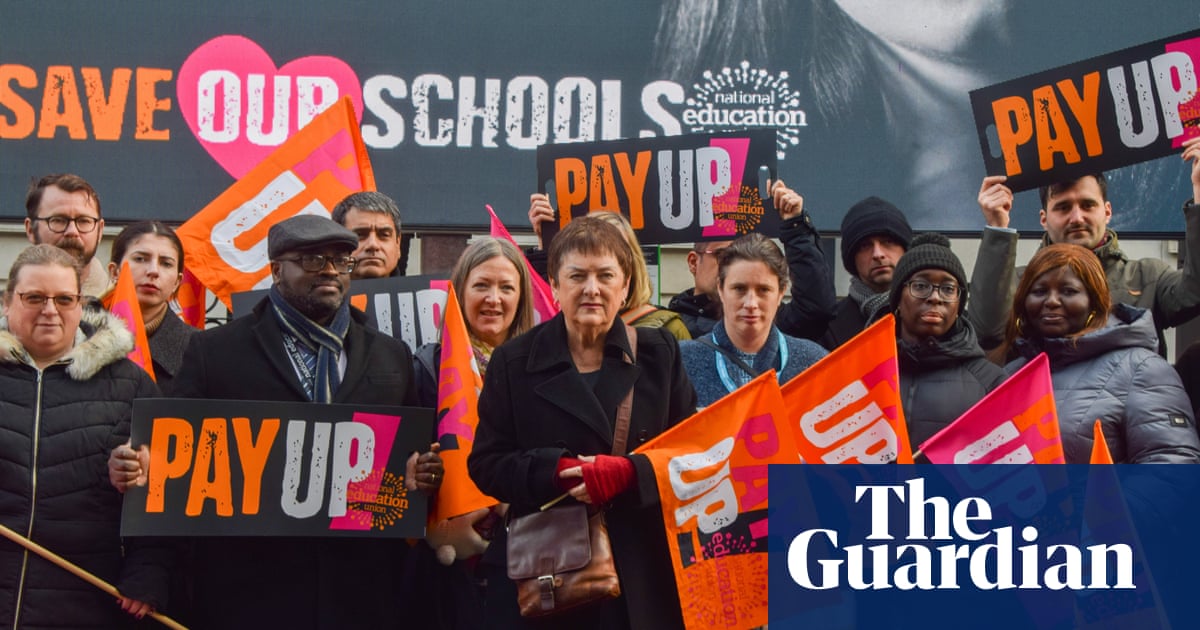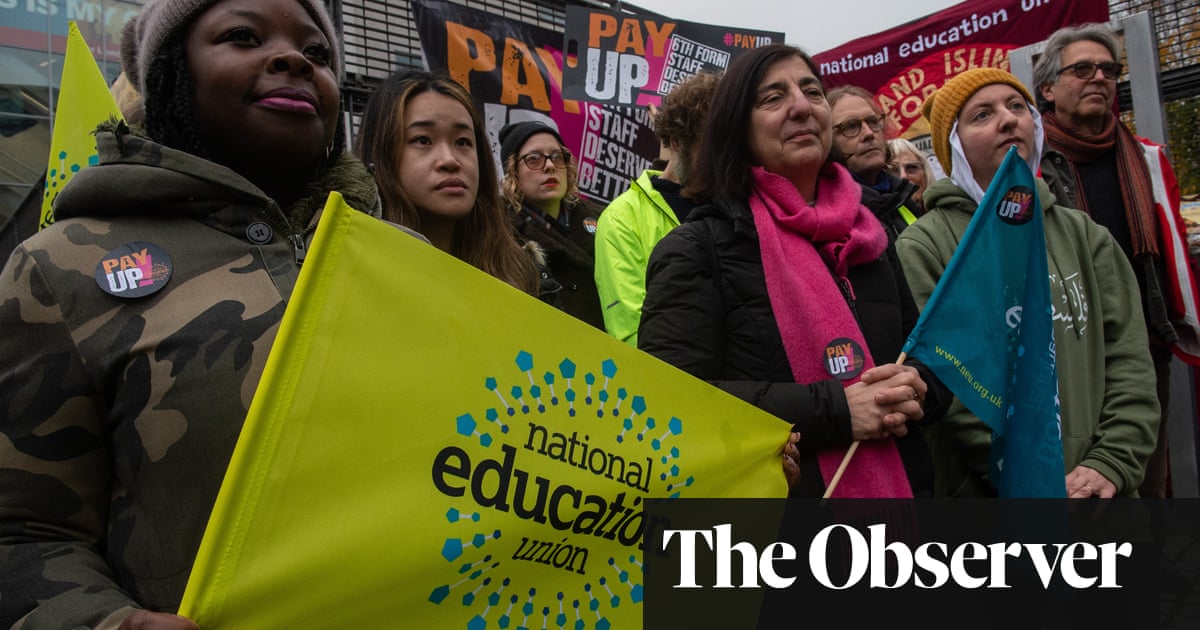
Thousands of ambulance workers and other NHS staff are to strike across England and Wales on 21 December in a dispute over pay, unions have announced, as the wave of industrial action planned for the winter builds.
The GMB, Unison and Unite unions are coordinating industrial action across England and Wales after accusing the government of ignoring pleas for a decent wage rise.
The strike will happen a day after members of the Royal College of Nursing stage their second walkout, also over pay.
The GMB said more than 10,000 ambulance workers across nine trusts in England and Wales would strike including the South West, South East Coast, North West, South Central, North East, East Midlands, West Midlands, Welsh and Yorkshire ambulance services.
Paramedics, emergency care assistants, call handlers and other staff will also walk out on 28 December.
Rachel Harrison, the GMB national secretary, said: “After 12 years of Conservative cuts to the service and their pay packets, NHS staff have had enough. The last thing they want to do is take strike action but the government has left them with no choice.
“Health secretary Steve Barclay needs to listen and engage with us about pay. If he can’t talk to us about this most basic workforce issue, what on earth is he health secretary for?
“The government could stop this strike in a heartbeat – but they need to wake up and start negotiating on pay.”
A Downing Street spokesperson said there were “significant planning meetings” taking place across the government to manage potential disruption from strike action.
Unite said more than 1,600 of its members at the West Midlands, North West and North East ambulance service trusts would join the walkout.
The Unite general secretary, Sharon Graham, said: “Make no mistake, we are now in the fight of our lives for the very NHS itself. These strikes are a stark warning – our members are taking a stand to save our NHS from this government.
“Patients’ lives are already at risk but this government is sitting on the sidelines, dodging its responsibility to sort out the crisis that it has created.
“Ministers can’t keep hiding behind the pay review body. They know full well it does not address the desperate need to get huge numbers of NHS workers off the breadline.
“Fail to act now to avert these strikes and the blame will rest firmly at the government’s door.”
Jason Kirkham, a Unite member and paramedic in the West Midlands, added: “This strike isn’t just about pay, it is to save the NHS. The NHS is crumbling. We can’t recruit and retain staff as pay is so low.”
Ambulance crews in Unison working for five services in England – London, Yorkshire, North West, North East and South West – will strike.
Unison said its strike, involving paramedics, emergency care assistants, ambulance technicians and other 999 crew members, would run from noon to midnight on 21 December.
The ambulance workers are to be joined by Unison nurses, porters, healthcare assistants, cleaners and other NHS workers at two Liverpool hospitals, who will also take action that day.
Saffron Cordery, the interim chief executive of NHS Providers, said trust leaders were planning and preparing to minimise disruption from “very worrying” strike action, but urged the government and union leaders to “find a solution to avert these strikes”.
Noting that NHS leaders understand why staff are striking, she added: “The challenges strike action presents for the health service at a time when it is under serious strain across every part of the system is undeniable. This will inevitably have an impact on some patients.”
The deputy Labour leader, Angela Rayner, accused the health secretary of failing to meet with NHS trade unions throughout the summer to avert winter strikes.
She said: “They knew this was coming and they again negligently did nothing about it. The frustration for me is there is a common theme with all of these disputes and that is this government failing to act in the interests of British people.”
Rayner added that in her local area, the north-west of England, the ambulance service was “at breaking point”, with patients urged to take taxis and avoid ringing unless absolutely necessary.
The British Medical Association chair of council, Prof Philip Banfield, said that doctors supported ambulance workers’ right to strike, which reflects a health system “left in dire straits”.
He said: “Ambulance workers have for too long been at the sharp end of a frighteningly under-resourced health service, working with extraordinary dedication in a system that simply does not value them enough. Doctors will today offer our solidarity to our colleagues in ambulances who feel this is the only way of getting this government to take the worsening predicament of the health service and its workers seriously.”
The health secretary, Steve Barclay, said it was “disappointing” that NHS workers would strike during “a challenging winter”.
He said the government was giving NHS workers on the lowest salaries an increase of up to 9.3% on top of a 3% award last year. “The economic circumstances mean unions’ demands are not affordable – each additional 1% pay rise for all staff on the Agenda for Change contract would cost around £700m a year,” he said.












